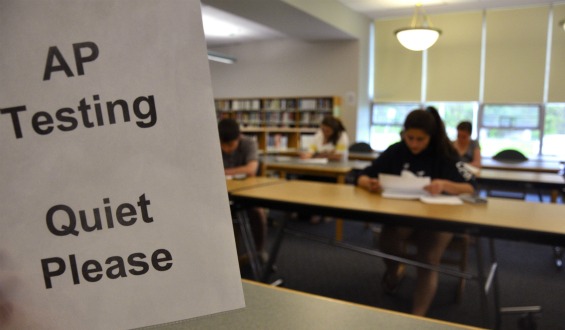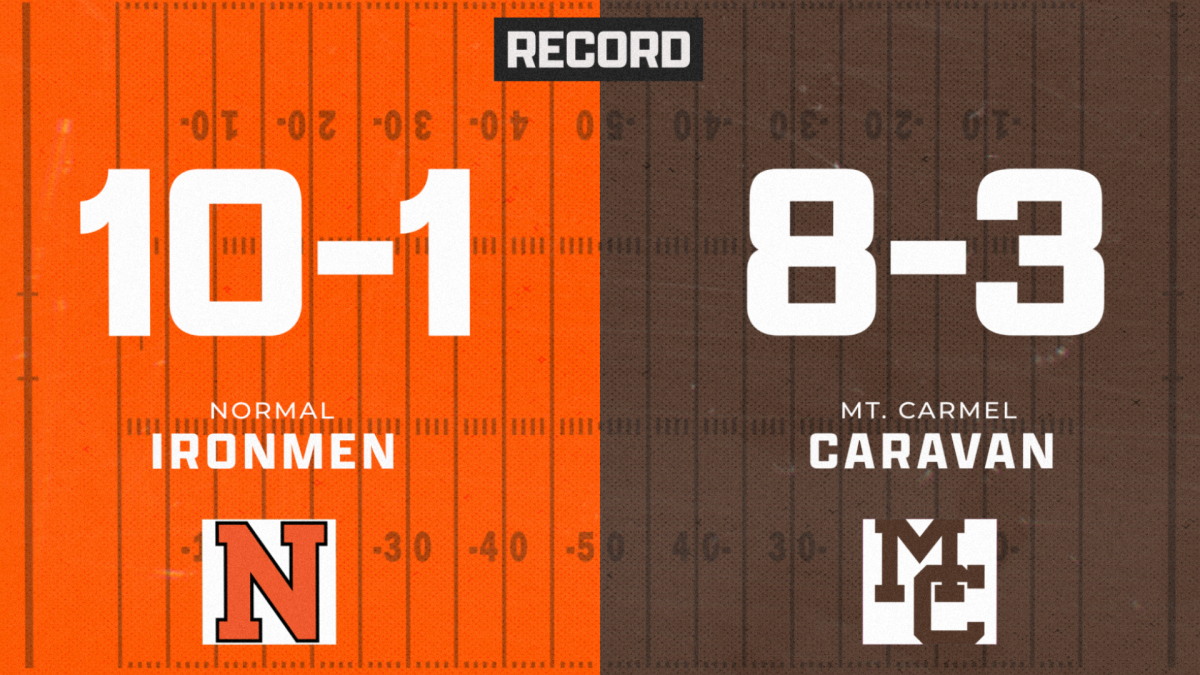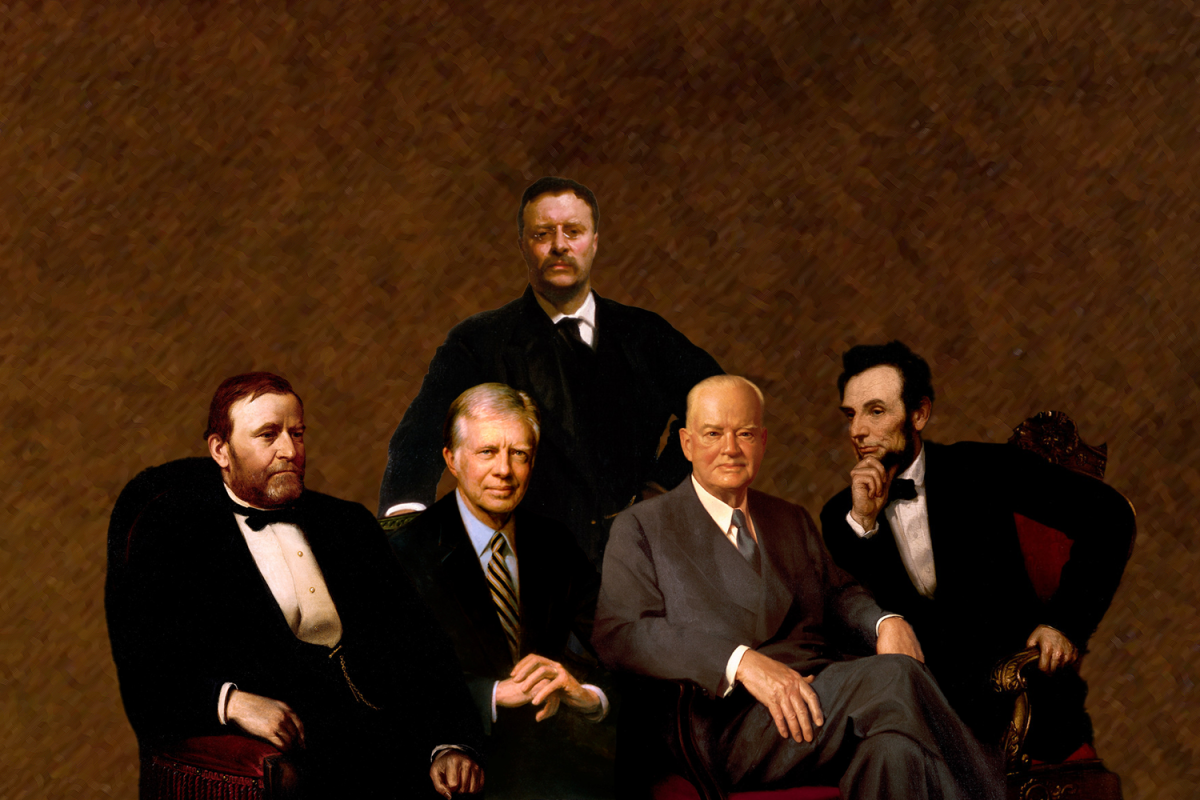
“On the AP Test” seems to be the class mantra of most Advanced Placement classes at Normal Community High School. Many students feel as though the pressure to get a five on the test overwhelms the need to apply the knowledge presented in the course. This idea has recently been brought to national attention by NCHS alumnus Ankur Singh(’12) in his pursuit to make a documentary called Listen, exposing the standardized format of the classroom (read Singh’s full explanation on The Washington Post here).
AP classes are frequently regarded as rigorous, and for college bound individuals. In such classes, it would be expected that the course include more technique and skill building. In Singh’s opinion, many of these classes consist of practice tests and learning how to say what the AP graders want students to say. He states that he would have rather analyzed the literature they read in his AP English class than respond to timed prompts similar to those on the AP test or in college courses. He questioned whether he was the only student in high school who was not simply there for a college diploma or a job. It is Singh’s firm belief that, as a generation who went through public grade schools since No Child Left Behind was passed, we must be the ones to speak up for ourselves to refute the College Board’s dehumanization of education.
It is imperative to remember, however, that AP classes are college level courses. Not only does the class itself cover the material and skills that will be discussed in college classes, but students also have the opportunity to earn college credit based on their AP test scores. Simply put, if a student does not wish to take a college preparatory class, they should not take an AP level course.
AP teachers are given an AP Course Description, around which they then design their lessons. The teachers form their lessons from a national curriculum, each one covering the subjects and skills expected to be highlighted on the course’s respective exam. Singh seems to believe that teaching to the test is intruding upon the lessons that would normally be taught in the class, when in fact, the exam is designed to be sure that students learned the proper information of the course.
Overall, Singh’s complaint of standardized testing is misdirected. Exam preparation does not work itself into the curriculum because the exam itself is the final checkpoint of the course. In AP English classes, for example, students write many timed responses to poems, short stories, and novel excerpts. The prompts are designed to train students to analyze literary devices (i.e. tone, diction, and syntax) as would be expected on the exam. Though the analyses expected from these writings are very specific to the smaller details of the literature, the ultimate goal is that students gain a better understanding of analyzing more than just plot, but also how the author conveys meaning. Drilling and training with these prompts causes students to be better writers and thinkers that are more attentive when they approach English assignments in their future college courses. The AP exam is simply a tool to see if students retained these skills.
“It’s basically just like a regular class, we’re just being taught college material,” Sophie Ochs(12) said. “Most of the reason I’m taking AP [Chemistry] is to make it easier in college.”
In addition to AP classes being designed by the College Board teachers who wrote the exams, standardized testing has no impact on the student’s grade. In fact, taking the AP tests is completely optional. If a student has no need to gain college credit in the area of their AP class, they do not need to take the examination. If a student does not wish to learn for the sake of taking the test and earning college credit or placement, they may simply take the course for the content and lessons. The student will face no penalty for on their final report card simply because they did not take the test.
“I feel very strongly that our AP curriculum provides students the opportunity to advance their foreign language skills whether they intend to take the standardized AP test in May or not,” French teacher Mrs. Laurel Litwiller said.
Standardized tests are the only tests on which we, as high school students, receive no ramifications for bad scores. They are simply to test where we are at in terms of our education, and, in terms of the Prairie State Achievement Exams, are an examination of the school. As with the Scholastic Aptitude Test (SAT) and American College Test (ACT), prospective colleges use the scores as a factor in determining the likelihood of student success at that university. No standardized tests have any impact on the final grade of a student. It is the student’s participation and effort in the class that determines the final grade. That participation and effort extends to all aspects of the course, whether they are exam preparation or lesson discussions. All parts of the AP curriculum are equally valid.
“We want students to be able to pass the ultimate test: to communicate in real-life settings. Students must realize the learning opportunities in AP in spite of the test correlation,” Mrs. Litwiller said.
All in all, if a student is not prepared or willing to take a college level course covering a national agenda, they simply should not take AP classes. Just because it is not preferential to those students who opt not to take the AP tests to do exam preparation, does not mean it is the duty of all AP students to demand a change in curriculum. It should be understood by College Board members, that not all AP students share Singh’s views on AP test work, and that many of us understand the long-term advantage presented by the rigorously detailed expectations in Advanced Placement classes.






























![Coach Drengwitz on the loss to Mt. Carmel, 2024 season [video]](https://nchsinkspot.com/wp-content/uploads/2024/11/Postseason-presser-feature-1200x800.png)


![IHSA 7A Football Playoffs Quarterfinals: Ironmen head coach on facing the Mt. Carmel Caravan [video]](https://nchsinkspot.com/wp-content/uploads/2024/11/0w12-web-feature-1200x800.png)













![Halloween candy cross section quiz [quiz]](https://nchsinkspot.com/wp-content/uploads/2022/10/Candy-cover-big-900x675.png)
![Average Jonah? [quiz]](https://nchsinkspot.com/wp-content/uploads/2022/05/average-jonah-900x600.png)






















![Cell phone ban in schools? Community responds to proposed legislation [video]](https://nchsinkspot.com/wp-content/uploads/2025/04/Sequence.00_01_09_19.Still001-1200x675.png)





![Ironmen spring sports update: April 9 [video]](https://nchsinkspot.com/wp-content/uploads/2025/04/sports-recap-square-1200x1200.png)

![Ironmen in the hunt: Coach Feeney talks Big 12 Title race ahead of PND matchup [video]](https://nchsinkspot.com/wp-content/uploads/2025/01/feeney-1200x675.png)
![On the Spot: This or That – Halloween [video]](https://nchsinkspot.com/wp-content/uploads/2024/10/tot-Halloween-YT-1200x675.png)
![On the Spot: This or That – Fall favorites [video]](https://nchsinkspot.com/wp-content/uploads/2024/10/ots-fall-web-1200x800.png)
![On the Spot – Teachers tested on 2023’s hottest words [video]](https://nchsinkspot.com/wp-content/uploads/2024/01/On-the-Spot-Teachers-tested-1200x675.png)








